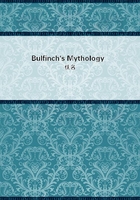
第5章
They were the daughters of Themis (Law), who sits by Jove on his throne to give him counsel.
The Erinnyes, or Furies, were three goddesses who punished crimes by their secret stings. The heads of the Furies were wreathed with serpents, and their whole appearance was terrific and appalling. Their names were Alecto, Tisiphone, and Megaera.
They were also called Eumenides.
Nemesis was also an avenging goddess. She represents the righteous anger of the gods, particularly towards the proud and insolent.
Pan [the name Pan means everything, and he is sometimes spoken of as the god of all nature] was the god of flocks and shepherds.
His favorite residence, as the Greeks describe him, was in Arcadia.
The Satyrs were deities of the woods and fields. They were conceived to be covered with bristly hair, their heads decorated with short, sprouting horns, and their feet like goats' feet.
Momus was the god of laughter, and Plutus the god of wealth.
ROMAN DIVINITIES
The preceding are Grecian divinities, though received also by the Romans. Those which follow are peculiar to Roman mythology.
Saturn was an ancient Italian deity. The Roman poets tried to identify him with the Grecian god Kronos, and fabled that after his dethronement by Jupiter, he fled to Italy, where he reigned during what was called the Golden Age. In memory of his beneficent dominion, the feast of Saturnalia was held every year in the winter season. Then all public business was suspended, declarations of war and criminal executions were postponed, friends made presents to one another, and the slaves were indulged with great liberties. A feast was given them at which they sat at table, while their masters served them, to show the natural equality of men, and that all things belonged equally to all, in the reign of Saturn.
Faunus [there was also a goddess called Fauna, or Bona Dea], the grandson of Saturn, was worshipped as the god of fields and shepherds, and also as a prophetic god. His name in the plural, Fauns, expressed a class of gamesome deities, like the Satyrs of the Greeks.
Quirinus was a war god, said to be no other than Romulus the founder of Rome, exalted after his death to a place among the gods.
Bellona, a war goddess.
Terminus, the god of landmarks. His statue was a rude stone or post, set in the ground to mark the boundaries of fields.
Pales, the goddess presiding over cattle and pastures.
Pomona presided over fruit trees.
Flora, the goddess of flowers.
Lucina, the goddess of childbirth.
Vesta (the Hestia of the Greeks) was a deity presiding over the public and private hearth. A sacred fire, tended by six virgin priestesses called Vestals, flamed in her temple. As the safety of the city was held to be connected with its conservation, the neglect of the virgins, if they let it go out, was severely punished, and the fire was rekindled from the rays of the sun.
Liber is another Latin name of Bacchus; and Mulciber of Vulcan.
Janus was the porter of heaven. He opens the year, the first month being named after him. He is the guardian deity of gates, on which account he is commonly represented with two heads, because every door looks two ways. His temples at Rome were numerous. In war time the gates of the principal one were always open. In peace they were closed; but they were shut only once between the reign of Numa and that of Augustus.
The Penates were the gods who were supposed to attend to the welfare and prosperity of the family. Their name is derived from Penus, the pantry, which was sacred to them. Every master of a family was the priest to the Penates of his own house.
The Lares, or Lars, were also household gods, but differed from the Penates in being regarded as the deified spirits of mortals.
The family Lars were held to be the souls of the ancestors, who watched over and protected their descendants. The words Lemur and Larva more nearly correspond to our word Ghost.
The Romans believed that every man had his Genius, and every woman her Juno; that is, a spirit who had given them being, and was regarded as a protector through life. On birthdays men made offerings to their Genius, women to their Juno.
Macaulay thus alludes to some of the Roman gods:--"Pomona loves the orchard, And Liber loves the vine, And Pales loves the straw-built shed Warm with the breath of kine;And Venus loves the whisper Of plighted youth and maid In April's ivory moonlight, Beneath the Chestnut shade.""Prophecy of Capys."
N.B. It is to be observed that in proper names the final e and es are to be sounded. Thus Cybele and Penates are words of three syllables. But Proserpine and Thebes have been so long used as English words, that they may be regarded as exceptions, to be pronounced as if English. Hecate is sometimes pronounced by the poets as a dissylable. In the Index at the close of the volume, we shall mark the accented syllable, in all words which appear to require it.